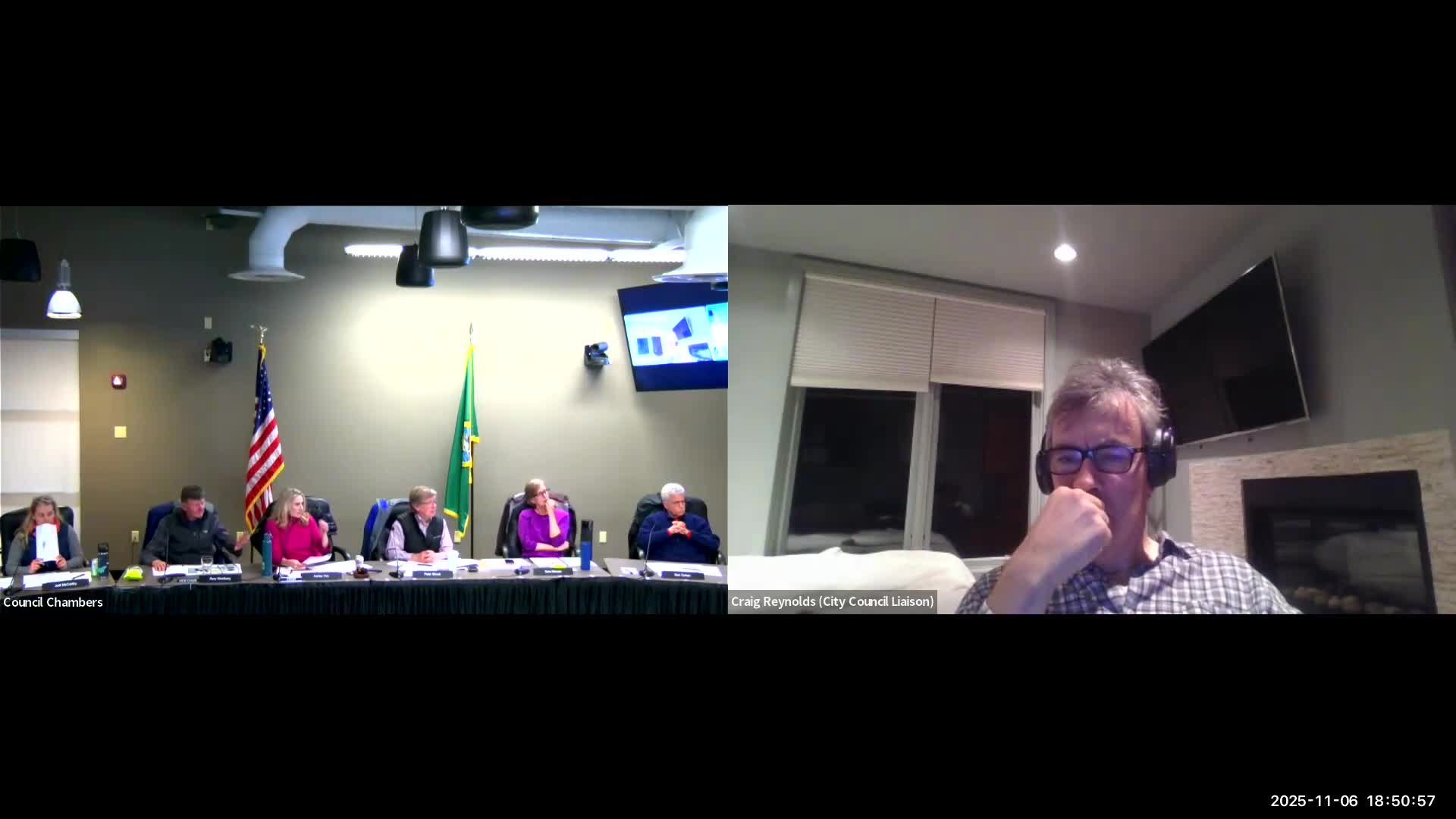Mercer Island staff propose court‑allocation policy to protect drop‑in pickleball play; commission asks for tighter limits on special events
Get AI-powered insights, summaries, and transcripts
Subscribe
Summary
Recreation staff presented a draft sport‑court allocation and use policy that keeps drop‑in play as the priority, limits private reservations and proposes blackout months for tournaments at Luther Burbank Park. Commissioners asked for stricter limits on special events and clearer rules to prevent instructors or groups from monopolizing courts.
Recreation staff presented a draft sport‑court allocation and use policy on Nov. 6 aimed at protecting drop‑in play on Mercer Island’s tennis and pickleball courts while providing limited, fee‑based avenues for private reservations, ongoing programs and special events.
The most newsworthy point: the draft places drop‑in play as the primary use for all courts and would restrict private reservations to a limited number of courts and time windows so that instructors or commercial providers cannot monopolize facilities. Staff emphasized fees would apply to private reservations; city‑run programs would remain under department control and exemptions for school or city uses would be reviewed by the department director.
What staff proposed
Ryan Daley, recreation manager, told the commission the policy would:
- Treat drop‑in use as the default for all courts and preserve posted rotation and time‑limit expectations; - Allow private reservations on a small subset of courts for limited time windows with a proposed 2‑hour maximum per group or instructor per day; - Require that instructor or program bookings be limited in advance (staff suggested short reservation windows and limits on advance booking to reduce monopolization); - Place restrictions on programs and leagues (programs must be open‑registration, limited to one provider per week and no more than 16 weeks per year) and cap special events/tournaments (staff initially proposed up to three per year).
Commission feedback and changes
Commissioners and staff discussed details at length. Commissioners stressed the explosive popularity of pickleball and asked staff to restrict special events so that tournament use does not unduly displace many short, drop‑in games. Based on the discussion, commissioners favored making the policy more conservative on special events; staff agreed to return with tightened language and to limit tournaments at Luther Burbank in July and August. The commission indicated support for the following refinements to be returned in January:
- Limit special events to two per calendar year (commission consensus) rather than the initial three; - Limit special‑event duration to three consecutive days maximum (commission consensus) rather than four; and - Require 45‑day advance requests for special events and clear disqualifying criteria (incompatible adjacent uses, impacts to access, unsuccessful prior compliance, etc.).
Reservations, programs and enforcement
Daley described private reservations as a narrowly available tool (staff estimated they would represent a small fraction of court hours) and said staff would identify which courts and time windows may be available for exclusive booking. Fees would apply to private/commercial reservations, similar to field rentals, to avoid subsidizing commercial activity. Programs that the city operates would be permitted separately under departmental program policy.
Commissioners asked how staff would prevent instructors or groups from gaming the system by booking consecutive blocks or coordinating multiple people to hold back‑to‑back reservations. Daley said the department would restrict advanced booking windows, limit reservation blocks and enforce compliance; staff also committed to monitoring and responding to complaints from drop‑in users.
Why it matters
Pickleball usage on Luther Burbank and other courts has increased dramatically; short average game times and informal stacking create high turnover and demand. The draft policy attempts to preserve broad public access while allowing limited commercial or organized uses under transparent rules and fees. The commission’s request to narrow special‑event allowances reflects concern that tournaments or private reservations could disproportionately displace many users.
Next steps
Staff will revise the draft to reflect commissioner direction (two special events per year, three‑day max, clearer disqualifiers and reservation windows), run it through legal review and return to the commission in January 2026 with updated language and fee recommendations.
